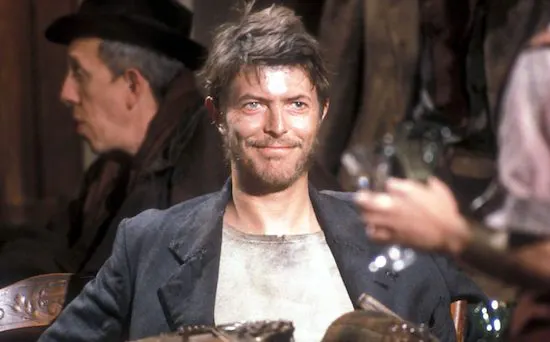The Low Culture Essay: Paul Burston on David Bowie's Baal
In this month's Low Culture essay, Paul Burston looks back at David Bowie's appearance in BBC TV adaptation of Bertolt Brecht's Baal, exploring how the German playwright was a frequent inspiration to the singer's many incarnations

In 1982, a year before mainstream superstardom beckoned with Let’s Dance, David Bowie released one of the least commercial records of his entire career. When people refer to Bowie’s “Berlin period” they tend to think of the “triptych” of albums he recorded with Brian Eno in the late 1970s – Low, “Heroes” and Lodger. By the time Lodger was released in 1979, Bowie had departed from Berlin and was living as a tax exile in Switzerland, but the city hadn’t left him. There’s a thread that stretches through Bowie’s work and relationship with Germany, and especially Berlin, from his obsession with Englishman-in-Weimar Christopher Isherwood and finds its way to the complex artistic and stylistic reference points he found in playwright Bertolt Brecht. It found fruition in the form of a curious acting role and accompanying collection of songs in the 1982 BBC television adaptation of Baal, Brecht's 1923 play about a debauched and dissolute poet eventually brought down by his own cruelty.
Bowie’s starring role in Baal was one of the least predictable turns in a career characterised by unpredictability. In 1980, he’d outshone the New Romantics with his reappearance as the prettiest Pierrot, as seen in the video for his UK number one single ‘Ashes To Ashes’ and on the cover of his critically acclaimed album Scary Monster (and Super Creeps) – the one against which every album would be measured for the remainder of his career. Bowie’s perfectly painted Pierrot was a return to the glamorous, androgynous personae that first made him famous. Same old thing, brand new drag. Yet by and large the early 80s were a relatively quiet time for Bowie until, in 1982, here he was on our television screens with blackened teeth and a scruffy beard, playing Brecht’s foul mouthed antihero in a BBC drama directed by Alan Clarke, best known for exploring England’s murk in Scum, Made In Britain, Penda’s Fen and Rita, Sue And Bob Too.
Baal was a brave step for Bowie. His last major screen role had been in the disastrous Just A Gigolo, released in 1978. The film was directed by David Hemmings, co-starred Marlene Dietrich and was later described by Bowie as “my 32 Elvis movies rolled into one.” He played the gigolo of the title and was drawn to the project by the prospect of working with Dietrich, only to discover that she refused to leave Paris and their scenes together would be filmed using a stand-in and some heavy editing. The film was universally panned, and understandably so. It’s often said that Just A Gigolo was Bowie’s goodbye to Berlin – and he could certainly be forgiven for turning his back on the city after such a monumental flop.
To continue reading this Low Culture essay you'll need to be a Quietus Low Culture or Sound & Vision subscriber
Find out more here (Opens in a new window)
Already a member? Log in (Opens in a new window)


